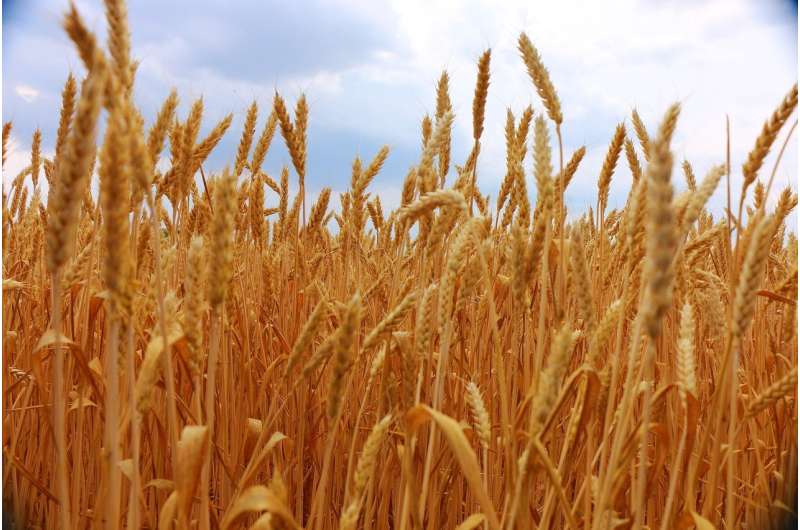Genetic diversity improves yield in hybrid crop varieties

Researchers from The University of Western Australia's Institute of Agriculture and University of Edinburgh's Roslin Institute have discovered that high levels of genetic diversity and dominant genes in grain crops such as wheat, barley or rice leads to the production of greater yields in hybrid varieties.
The study, published in Scientific Reports, used computer simulation to study how genetic diversity affected the yield of hybrid varieties in self-pollinating crops.
Professor Wallace Cowling from UWA's Institute of Agriculture said hybrid varieties tended to produce greater grain yields than parent varieties, but hybrids were not as successful in self-pollinating crops as in cross-pollinating crops.
"In cross-pollinating crops such as corn or maize, hybrid varieties produce double the grain yield of the parent varieties," Professor Cowling said.
"However, this isn't the case for self-pollinating crops like wheat, barley or rice, where hybrid varieties usually produce only 10-15 percent more grain yield compared to their parents."
With the aim of improving the yield of hybrid varieties, the research team modelled different breeding scenarios.
"Modern corn hybrids are the result of crosses between two well-known hybrid breeding pools, so we modelled the development of hybrid breeding pools in self-pollinating crops," Professor Cowling said.
"We found that it didn't matter how you started the breeding process, hybrid breeding pools quickly developed after a few generations of simulated hybrid breeding.
"However, successful future hybrid varieties were only achieved when the initial breeding material had high levels of genetic diversity and dominant genes."
The next step for the researchers will be to identify genes with high levels of dominance, and apply this to hybrid variety breeding.
"By doing this we could improve the yield of hybrid varieties which would have significant benefits for Australian and international farmers and future global food production," Professor Cowling said.
More information: Wallace A. Cowling et al. In silico simulation of future hybrid performance to evaluate heterotic pool formation in a self-pollinating crop, Scientific Reports (2020). DOI: 10.1038/s41598-020-61031-0
Journal information: Scientific Reports
Provided by University of Western Australia


















